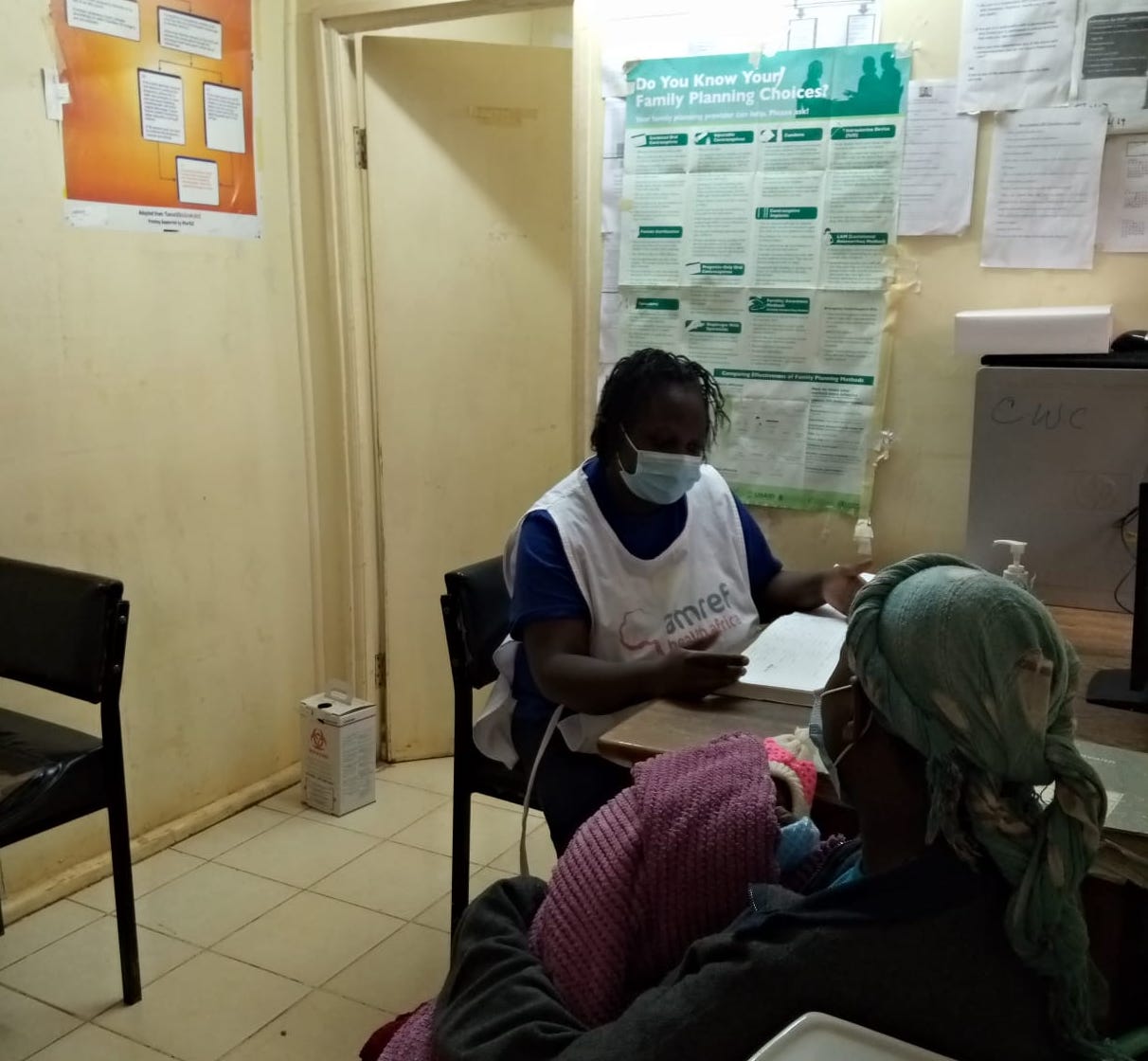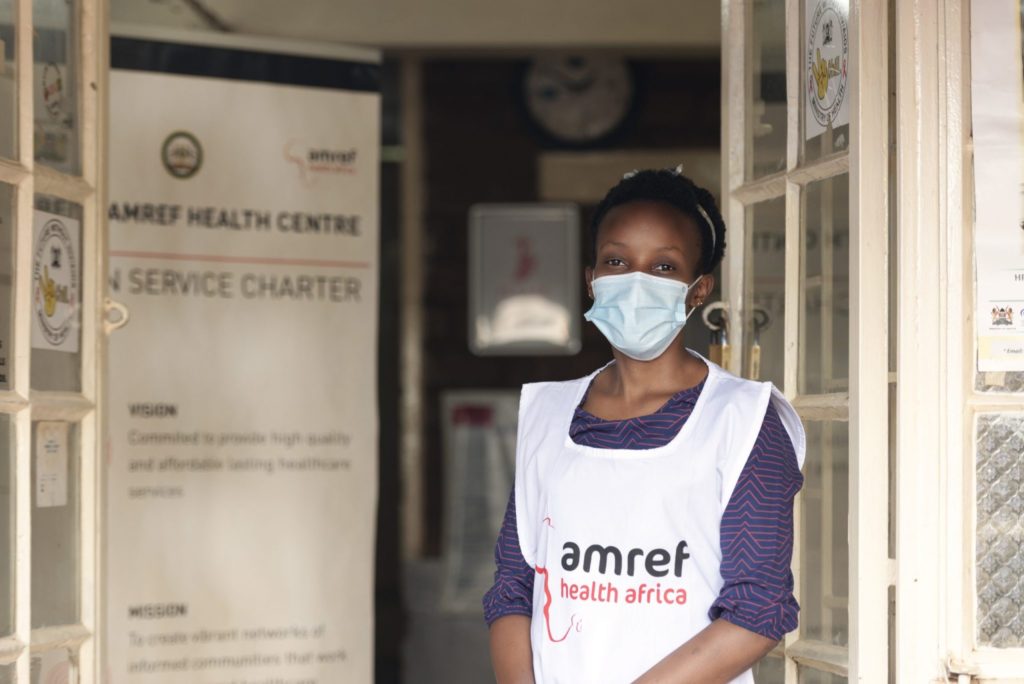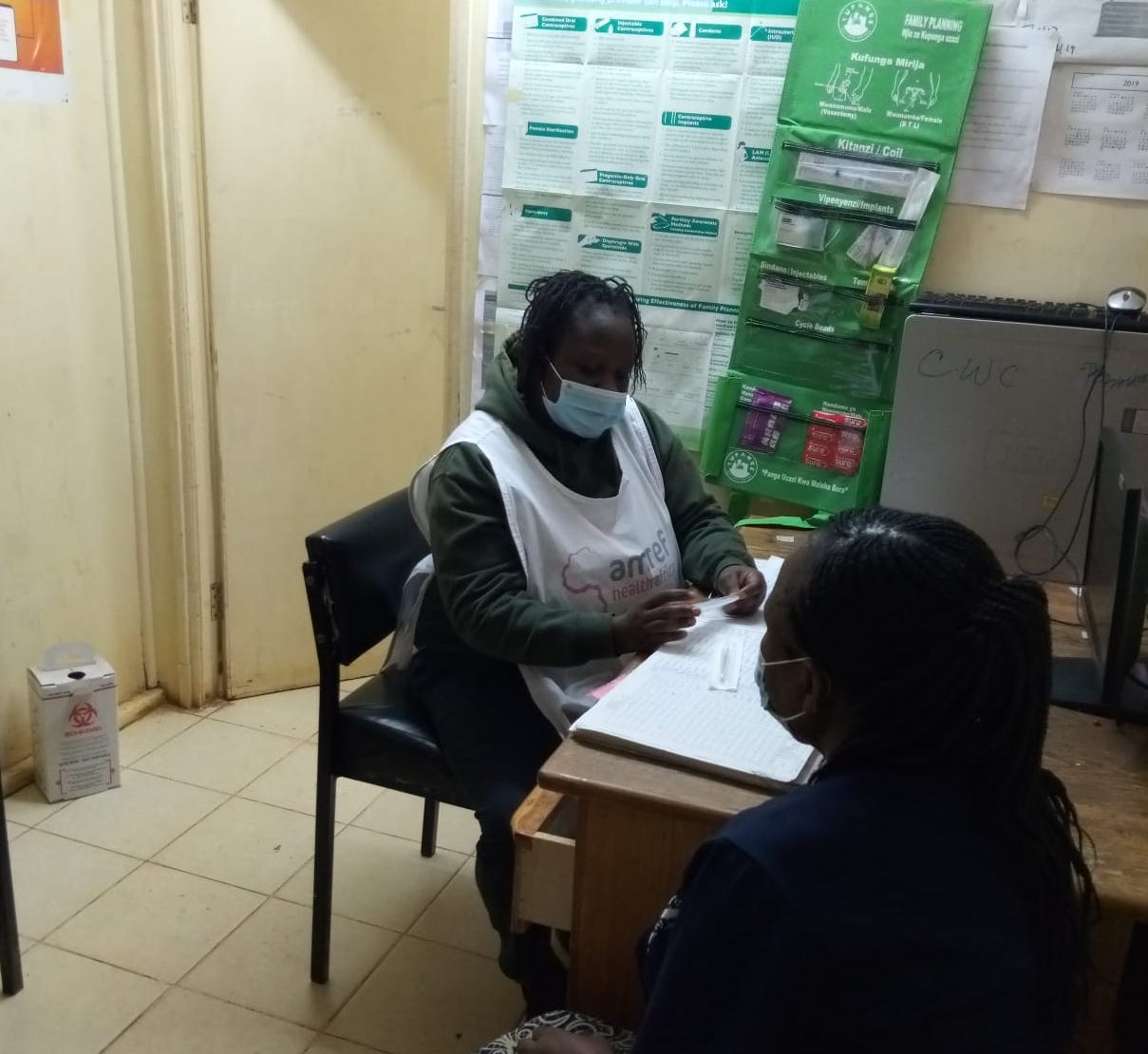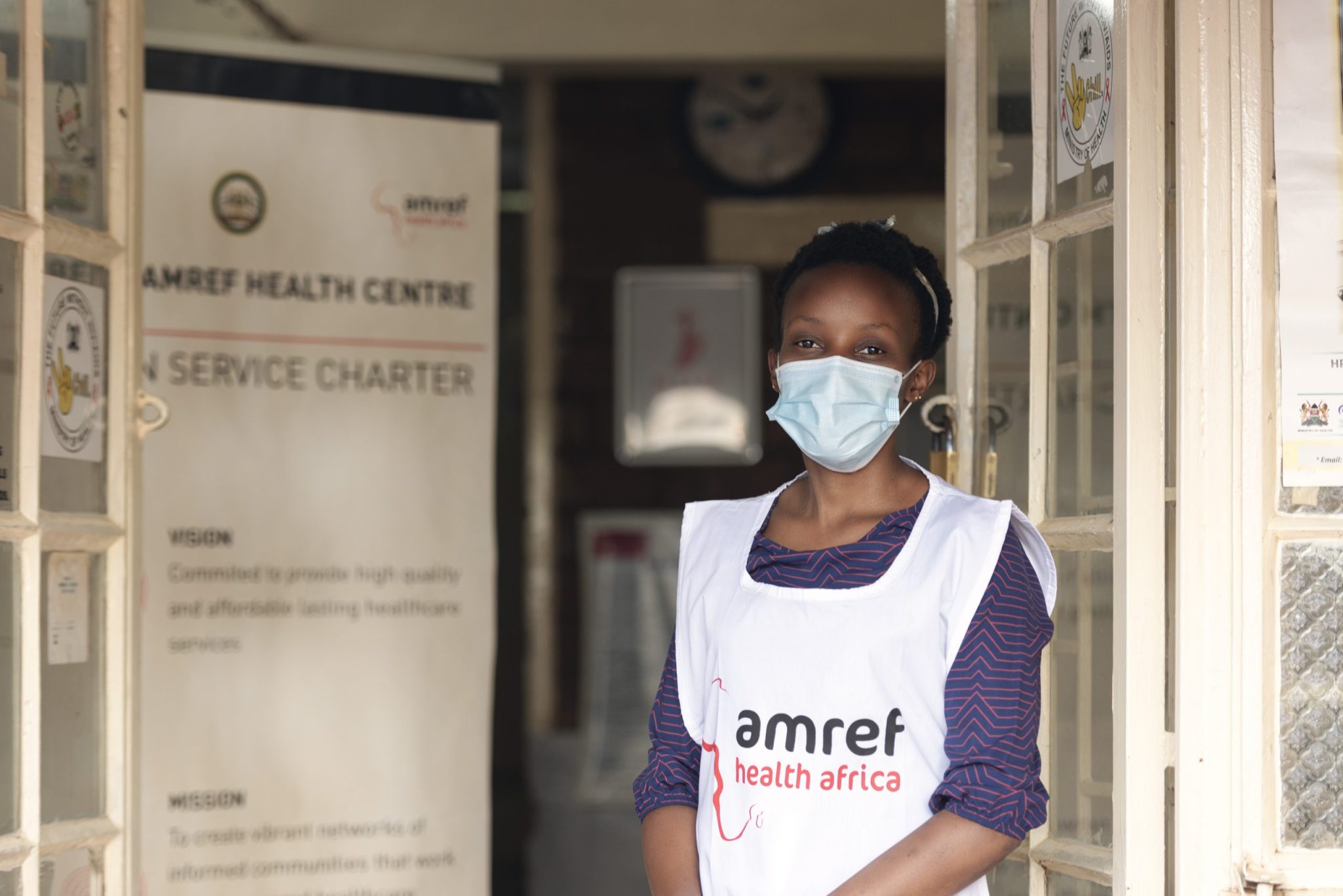FP/RH and HIV Integration and Reach
Kibera Reach 90 applies the Kenya Quality Model for Health (KQMH), which integrates evidence-based medicine through wide dissemination of public health and clinical standards and guidelines combined with total quality management and patient partnership. This model strengthens health worker capacity to ensure high-quality service delivery with available resources. Integrating care—including linking FP/RH counseling with HIV health education and counseling—can ensure there are no missed opportunities. Integration also includes the provision of HIV testing at antenatal care visits where FP/RH care is offered.
The project offers direct services to about 12,000 patients receiving antiretroviral therapy (ART), and the facilities monitor patients’ viral load. All couples/partners and women are given FP/RH information and care during their routine clinic checkups. Kibera Reach 90 leverages Community Health Volunteers (CHVs) for continued health education as well as peer-to-peer education and client support groups. The CHVs cover a total of 1,132 households, where they deliver door-to-door education about HIV/TB and FP/RH care. In 2019, 547 women and 27 adolescent girls received ART to reduce the risk of mother-to-child-transmission; 6,326 men, 13,905 women, 1,178 boys, and 2,077 girls were counseled, tested, and received their HIV test results. Additional components of care provided to mothers and girls include counseling on exclusive breastfeeding, PMTCT, and voluntary family planning care.

Kibera Reach 90 also provides mothers with counseling on exclusive breastfeeding, PMTCT, family planning care, and MNCH.
Furthermore, Kibera Reach 90 builds the capacity of government facilities by providing human resources support and technical assistance for achieving quality improvement goals. Project activities take place in the primary health facilities, where voluntary FP/RH care is part of the standard package for women accessing care at both outpatient and Maternal, Neonatal and Child Health (MNCH) clinics. Pregnancy intention and family planning screening tools are administered to people living with HIV to increase uptake of voluntary family planning and pre-conception care. This ensures that mothers access specialized services at the model project facilities without queuing with the rest of the facilities’ clients. Where the project is unable to offer FP/RH care as a one-stop shop, project staff makes referrals; upon presentation of the referral slips, the client is served without having to wait in line.










